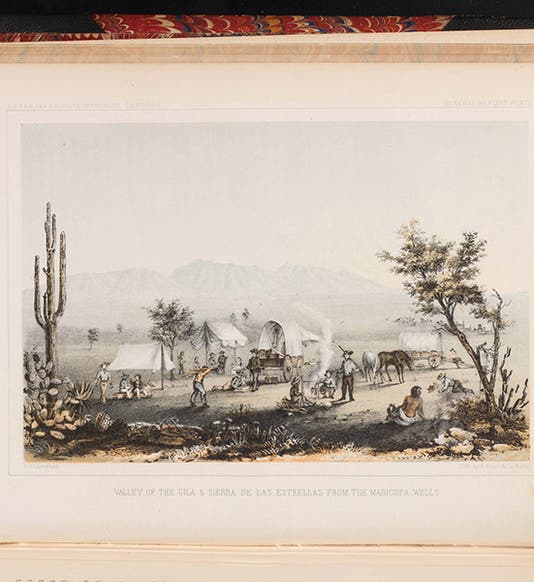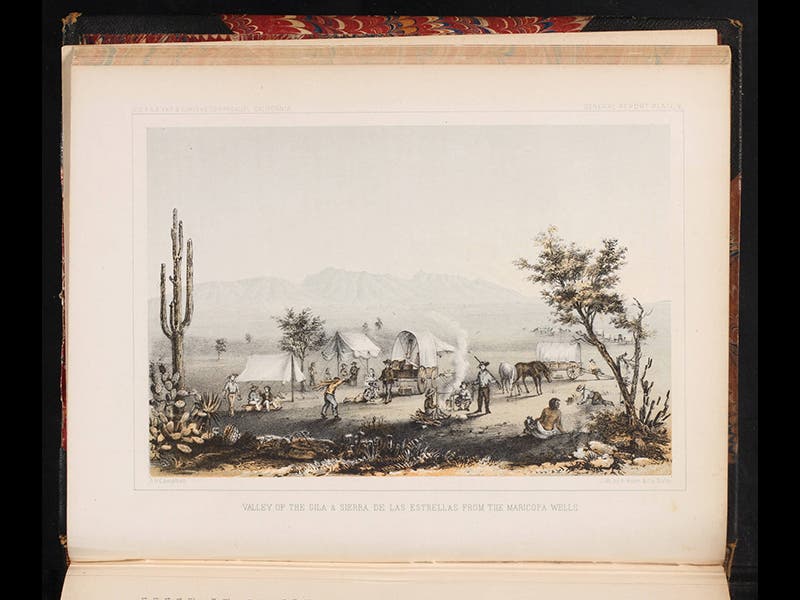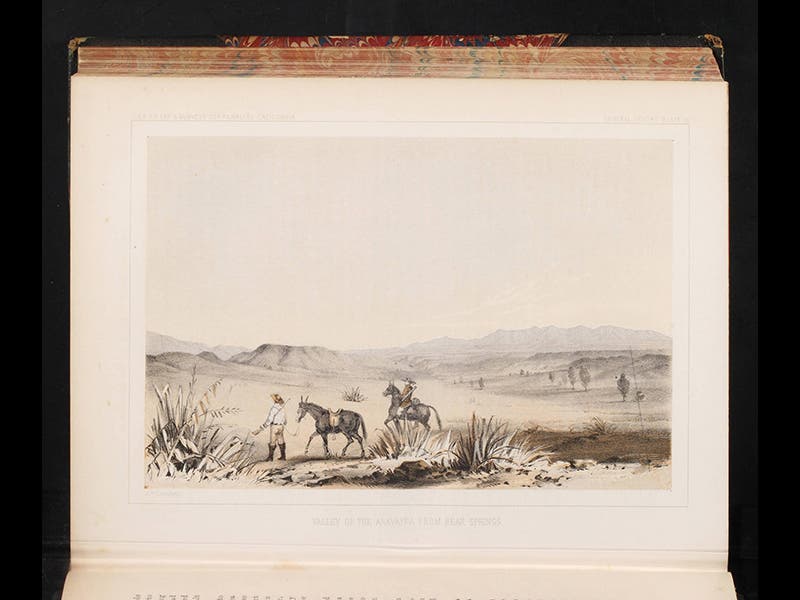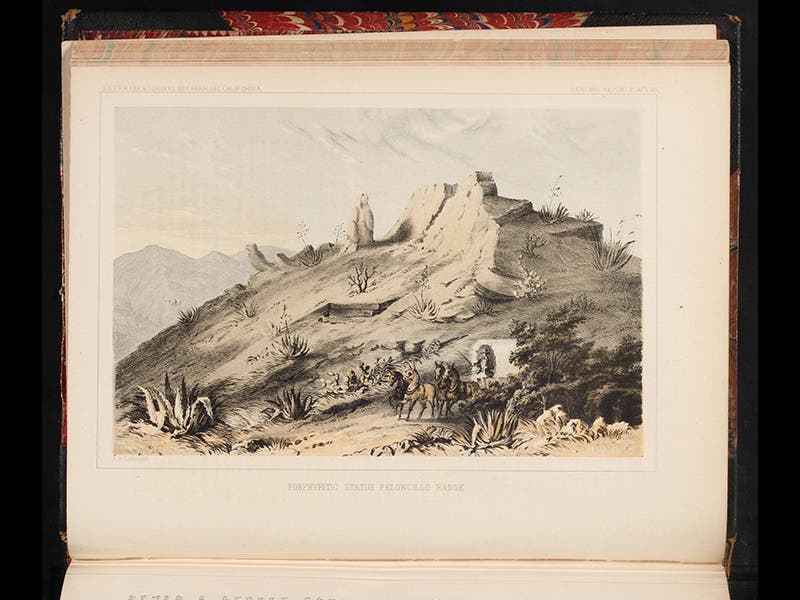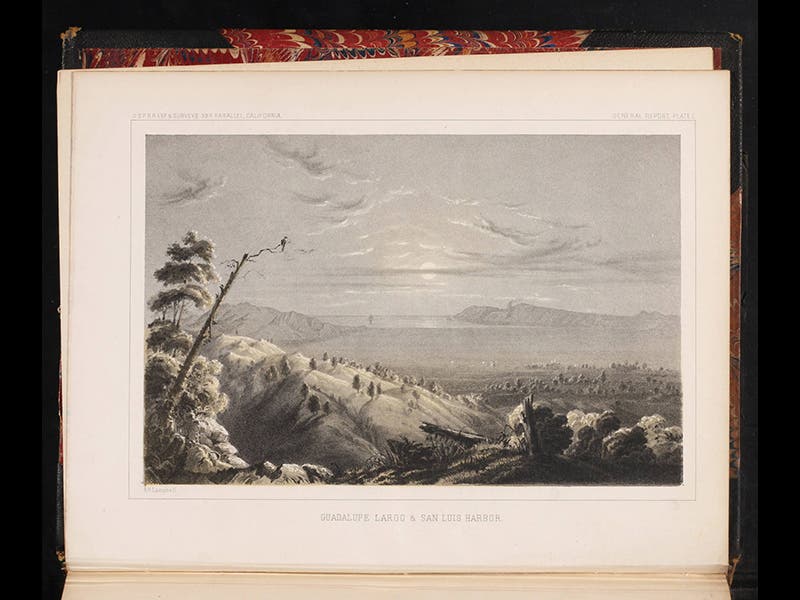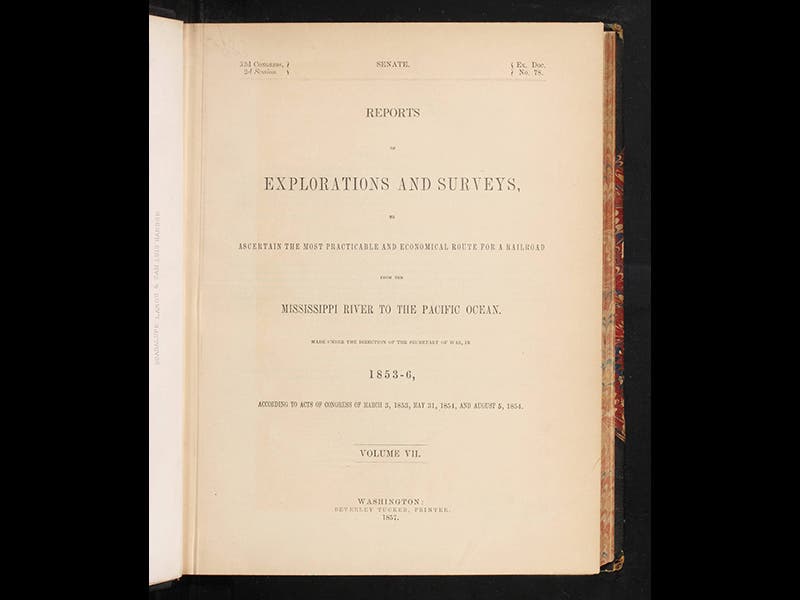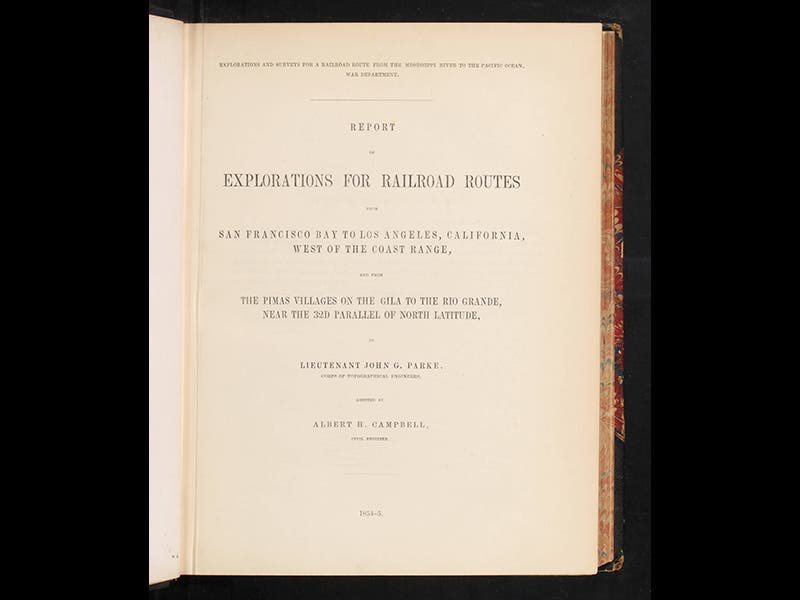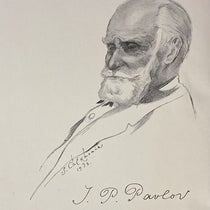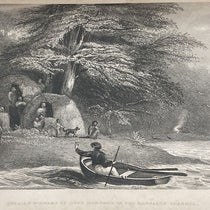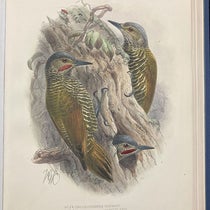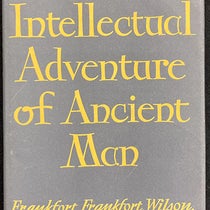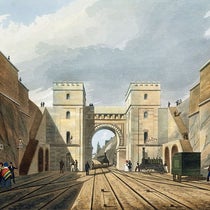Scientist of the Day - Albert H. Campbell
Albert H. Campbell, an American civil engineer and explorer, died Feb. 23, 1899, at age 72. In 1854, the U.S. government launched a series of expeditions to the Far West, to survey possible routes for a transcontinental railroad. Campbell participated in Amiel Whipple's survey along the 35th parallel through New Mexico and Arizona, 1853-54, and then in John Parke's 32nd parallel survey to San Diego, 1854-55. Campbell was a competent artist, and he drew landscapes of the California and Arizona countryside on both surveys. We see above four of his eight lithograph views that were published in Parke’s survey. There were 13 volumes of Pacific Railroad Reports in all, containing the results of all the surveys. Included above (fifth image) is the general title page that was in all the volumes, and then the special title page for the Parke survey (sixth image), which mentions Campbell as assistant topographic engineer. We have two sets of the Reports in the Library, one in the History of Science Collection, and another in our Government Documents collection.
We displayed Campbell’s volume of the Pacific Railroad Reports, and most of the other volumes, in our 2004 exhibition, Science Goes West; indeed, it was our possession of the complete set of Reports that was the driving force behind the exhibit, since each of the volumes contains dozens of chromolithographs of all manner of Western sights, from buffalo herds to giant sequoias to vistas of the Grand Canyon. It is unfortunate that we never had the resources to put this exhibition online.
Dr. William B. Ashworth, Jr., Consultant for the History of Science, Linda Hall Library and Associate Professor, Department of History, University of Missouri-Kansas City

